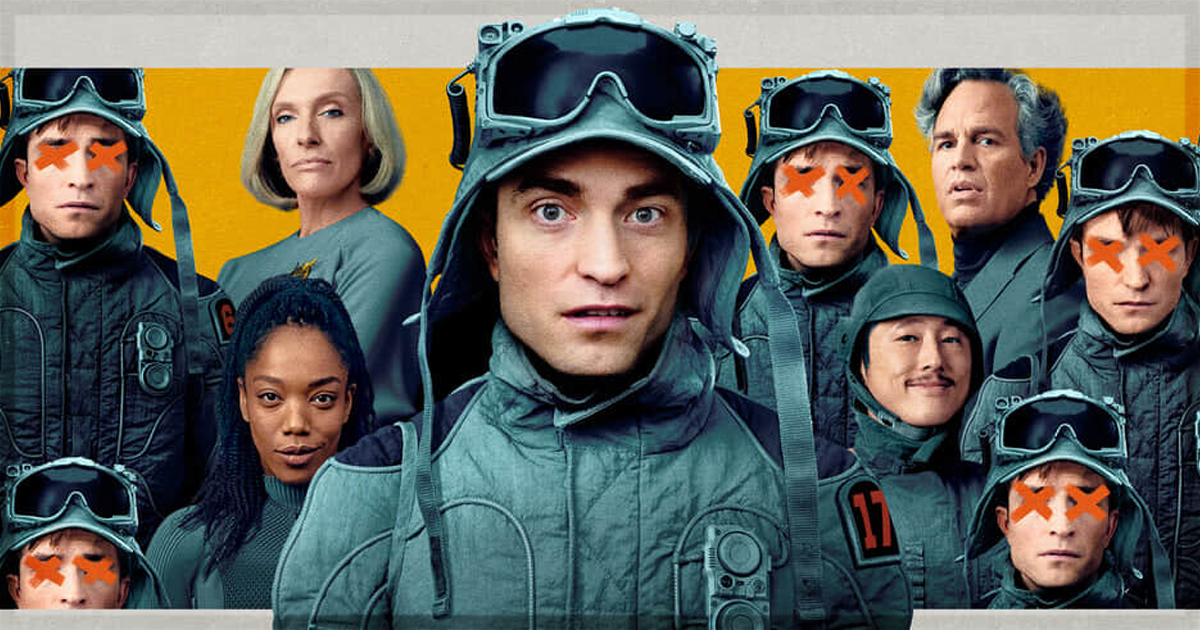Bong Joon-ho is one of the most fascinating filmmakers of the century. From The Host to Parasite, not forgetting Snowpiercer or Okja, the writer-director jumps from genre to genre, blending distinct tones with remarkable balance and efficiency. Joon-ho fits into that special category of filmmakers who simply cannot make a “bad film.” Mickey 17 combines science fiction with dark comedy, featuring a star-studded cast led by Robert Pattinson (The Batman).
It’s an adaptation of Edward Ashton’s novel – originally titled Mickey7 – and tells the story of the eponymous character, who’s categorized as an Expendable – a disposable worker sent on a human expedition to colonize a completely frozen world known as Niflheim. Mickey 17 takes place in a time when technological advancement is so evolved that when one version of Mickey Barnes (Pattinson) dies, a new body is cloned with most of his memories intact via a futuristic printing device.
Sci-fi and comedy are two highly compatible genres, but depending on the narrative premise, tonal control may not be as simple as it seems. Mickey 17 brings several highly relevant sociopolitical themes to the table: identity – what truly separates us from one another?; mortality – are some lives more valuable than others?; the ethics of advanced technology and how its use can strip humans of autonomy and dignity; colonialism and how easily native populations are discriminated against and undervalued; and even the incompatibility between survival and political bureaucracy.
Ashton’s original work is an intriguing study of numerous contemporary issues, and Joon-ho’s adaptation touches on all these significant topics through satire and parody. However, it never quite reaches the depth and complexity that lie at the heart of the narrative. The movie’s thematic potential remains underexplored due to its constant need to push forward to the next plot point and its lack of subtlety in drawing parallels to real life, diminishing the necessary immersion in a fictional work of this scale.
From Mark Ruffalo’s (Poor Things) caricatured portrayal of Kenneth Marshall – reminiscent of a recently elected President, with exaggerated makeup, expressions, speech patterns, and even the color of his hats, making the comparison far too obvious – to various blunt dialogues about the themes above, Mickey 17 lacks a more delicate thematic approach. Furthermore, the film spends too much time inside the spaceship, when there’s an entirely new planet with an unknown native species outside that doesn’t receive enough screen time to become significant.
That said, Mickey 17 remains a highly entertaining flick, capable of generating laughs through its comedic script and the dedicated performances of its talented cast. Pattinson carries much of the film on his shoulders with a commendable dual performance, where the actor differentiates his distinct personalities purely through facial expressions, body posture, tone of voice, and mannerisms. From his impeccable comedic timing to his variations in intensity when delivering lines, one couldn’t ask for much more from a lead actor.
Naomie Ackie (Blink Twice) also stands out as Nasha Barridge, a security officer who becomes Mickey’s love interest and proves to be one of the movie’s most capable, intelligent characters. The actress handles Mickey 17‘s most emotional moments effortlessly, just like Pattinson and even Steven Yeun (Nope), who plays Timo, Mickey’s childhood friend. Meanwhile, Toni Collette (Hereditary) interprets Ylfa, Marshall’s wife, but remains overshadowed by Ruffalo throughout, underutilized in a film that doesn’t entirely justify its runtime.
Joon-ho makes several changes to the original work, including altering characters – Barridge, for example, is the equivalent of Ylfa in the novel – and, in a decision that’s always risky, the story’s conclusion. Mickey 17 conveys a final message that’s less philosophical and ambiguous than the book, being more direct and explicit about the dangers of cloning and the complexities of personal identity. Fundamentally, there are differences between the endings of the two stories, but both explore the same human themes.
Technically, the score by Jung Jae-il – a frequent Joon-ho collaborator – stands out among the technical aspects. The background music enhances the comedic layer with equally hilarious accompaniment, while certain song choices help Mickey 17 captivate its audience. The design and sound of the Creepers are effective enough to create a personally unsettling impression, especially during violent scenes. The overall production value deserves praise, though it’s somewhat hindered by the lack of time spent outdoors.
Final Thoughts on Mickey 17
Mickey 17 presents an intriguing sci-fi concept and raises interesting questions, even if it doesn’t always explore them with the desired depth. Bong Joon-ho continues to demonstrate his mastery in blending genres, but here, the satire and lack of subtlety in the narrative end up limiting the emotional and philosophical impact of a story centered on sociopolitical themes like identity, technology, and colonialism. Nevertheless, with a star-studded cast led by an excellent Robert Pattinson and a captivating audiovisual style, the South Korean filmmaker reinforces his status as one of the most creative directors working today, delivering an experience that falls somewhere between fascinatingly hilarious and frustratingly superficial.
Rating: B
Mickey 17 is now playing in theaters.
Learn more about the film, including how to buy tickets, at the official website for the title.


